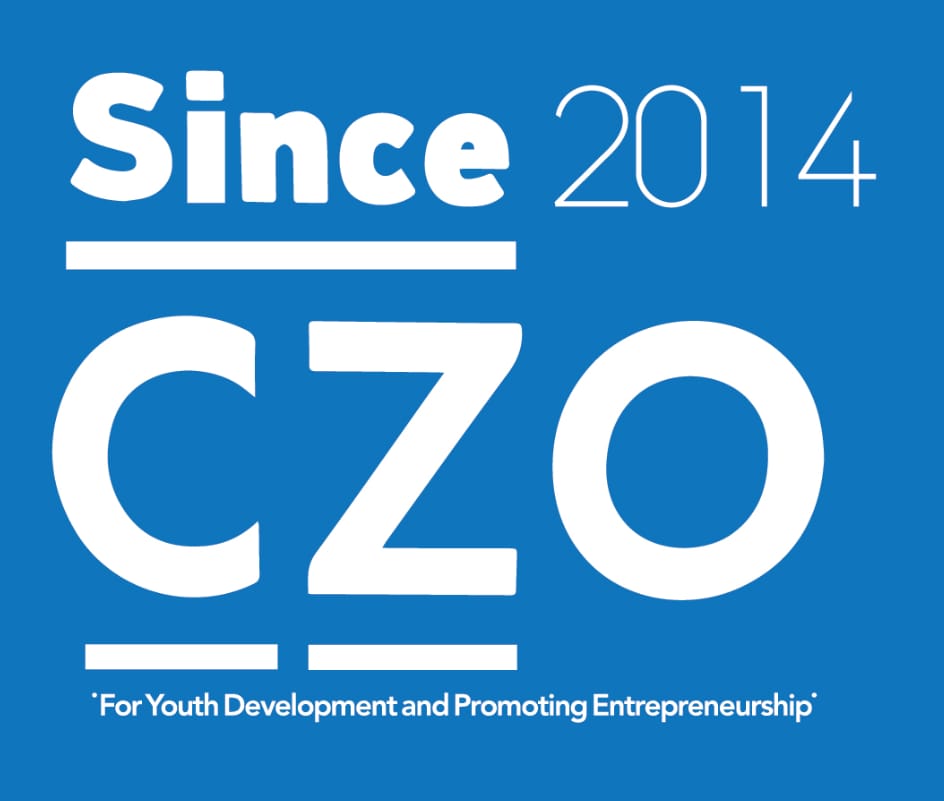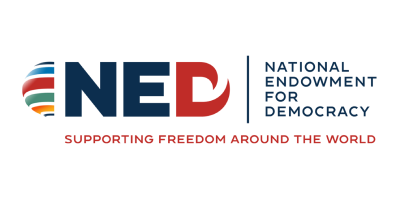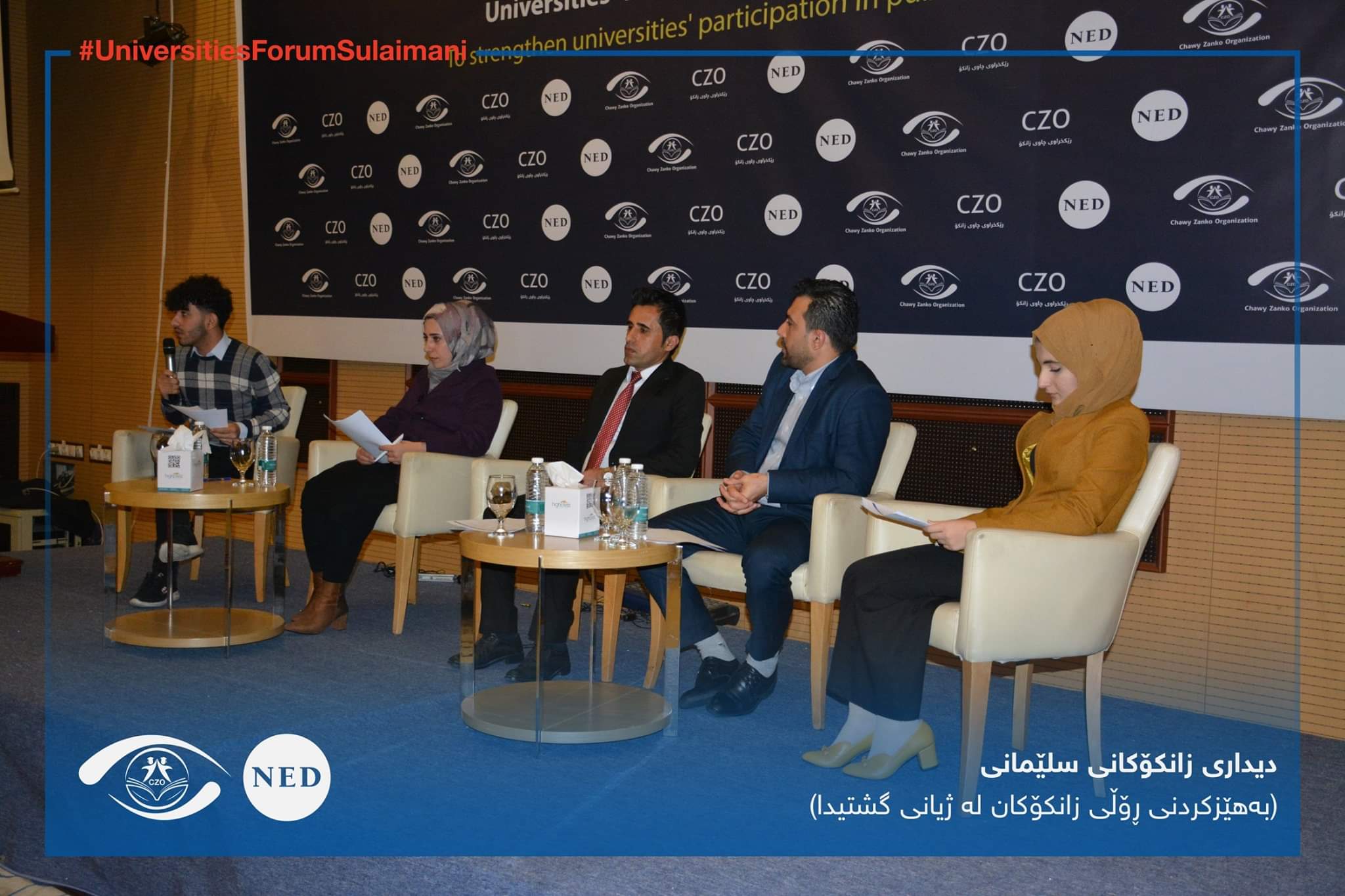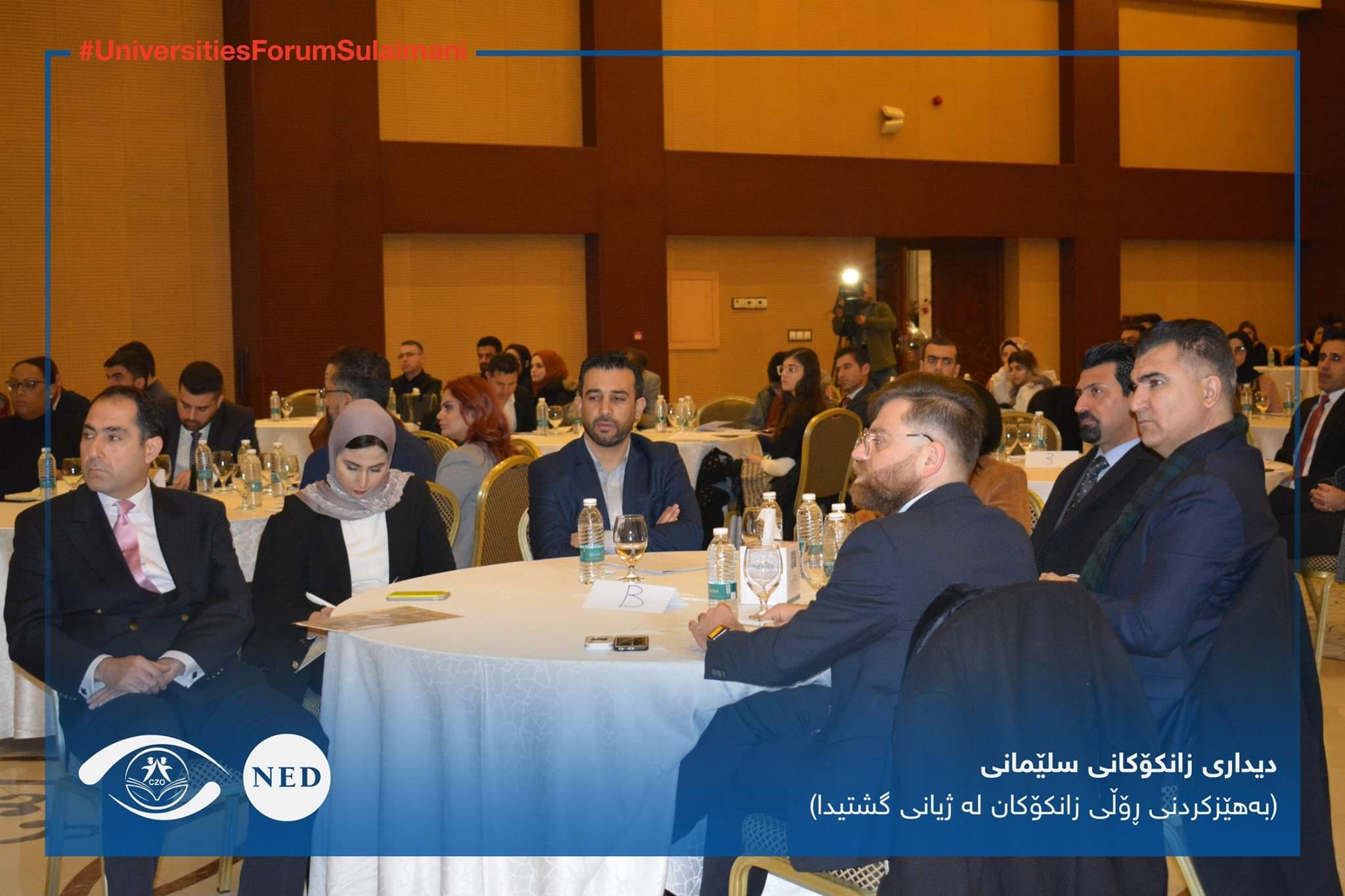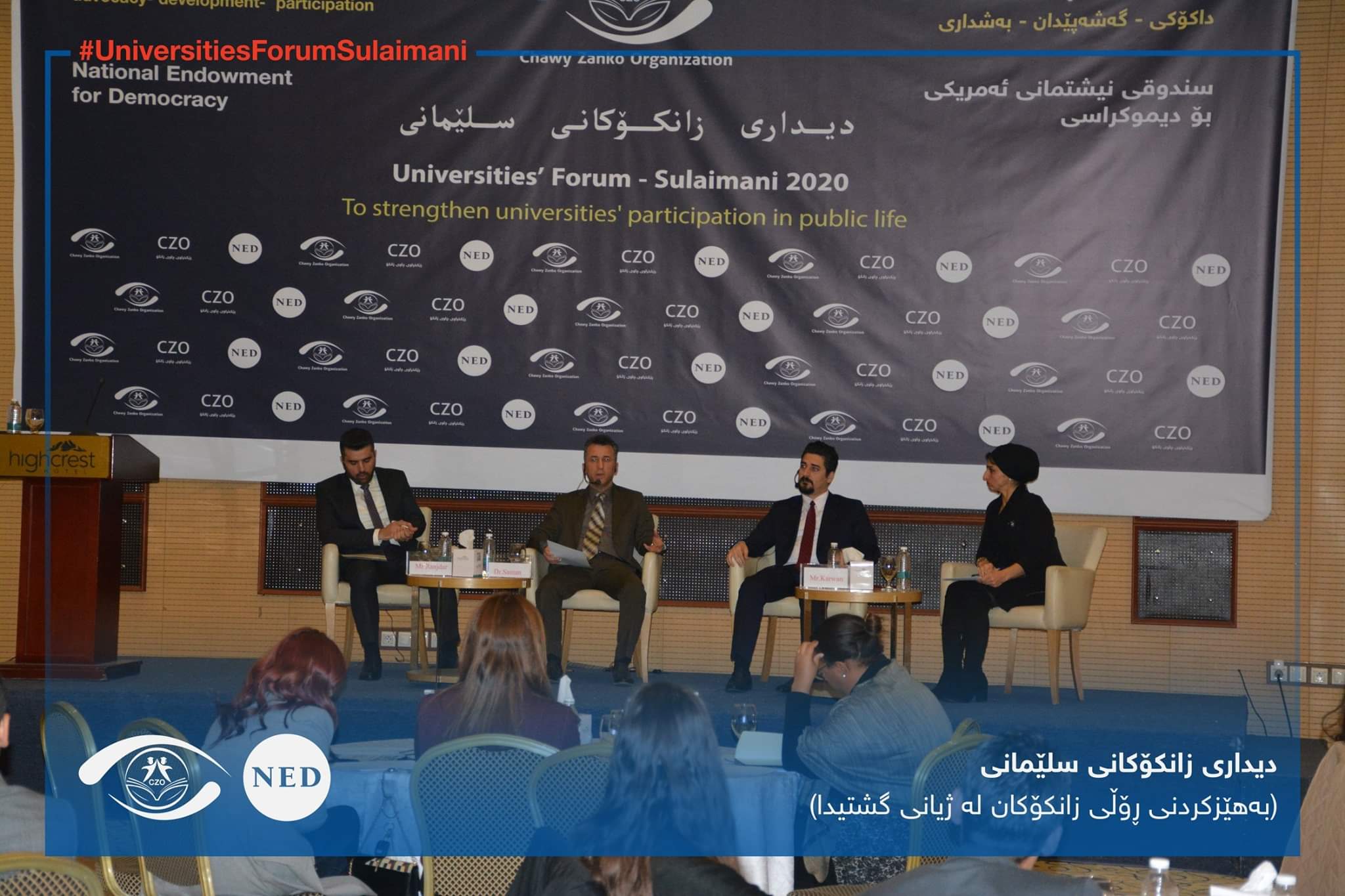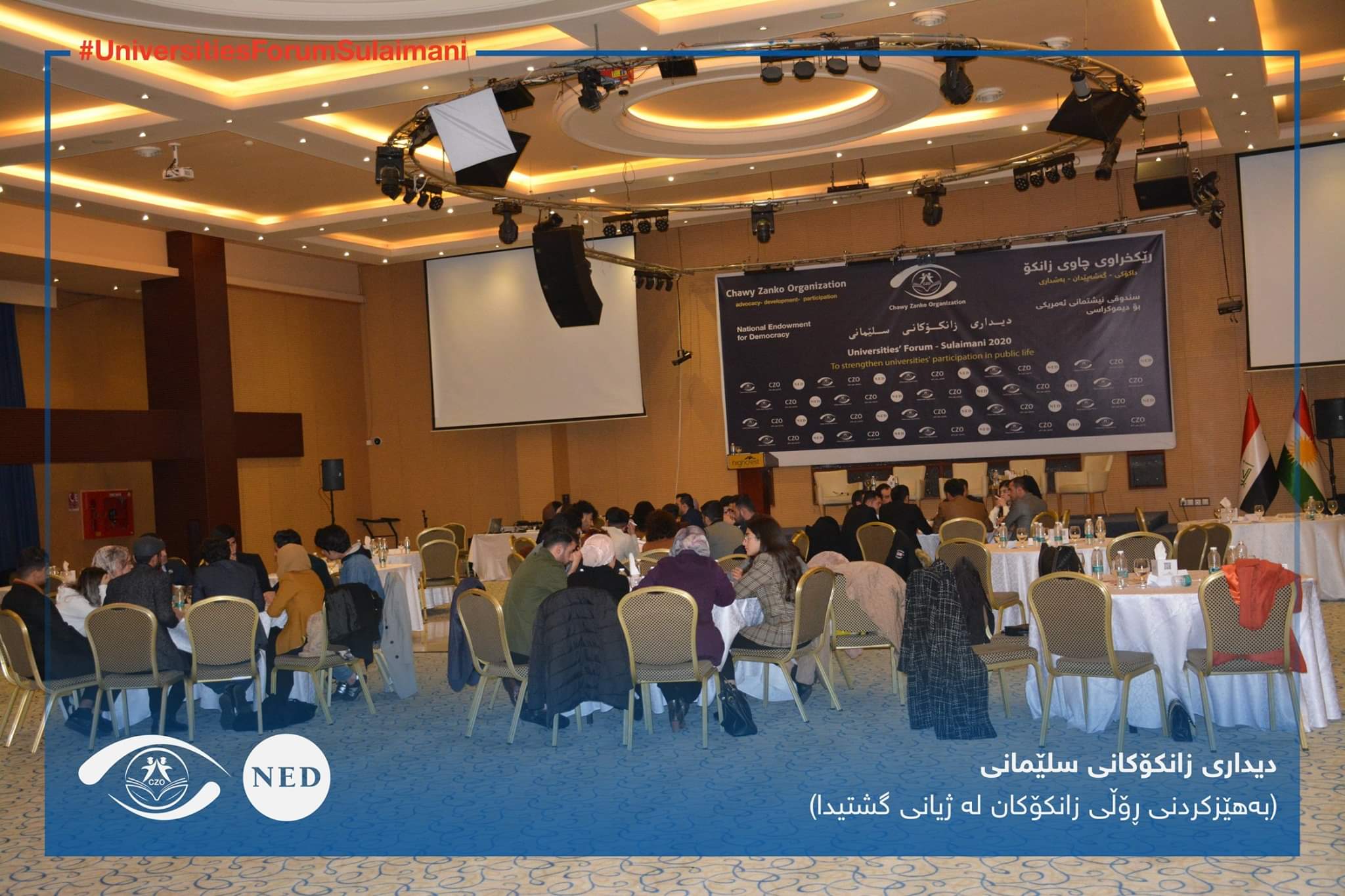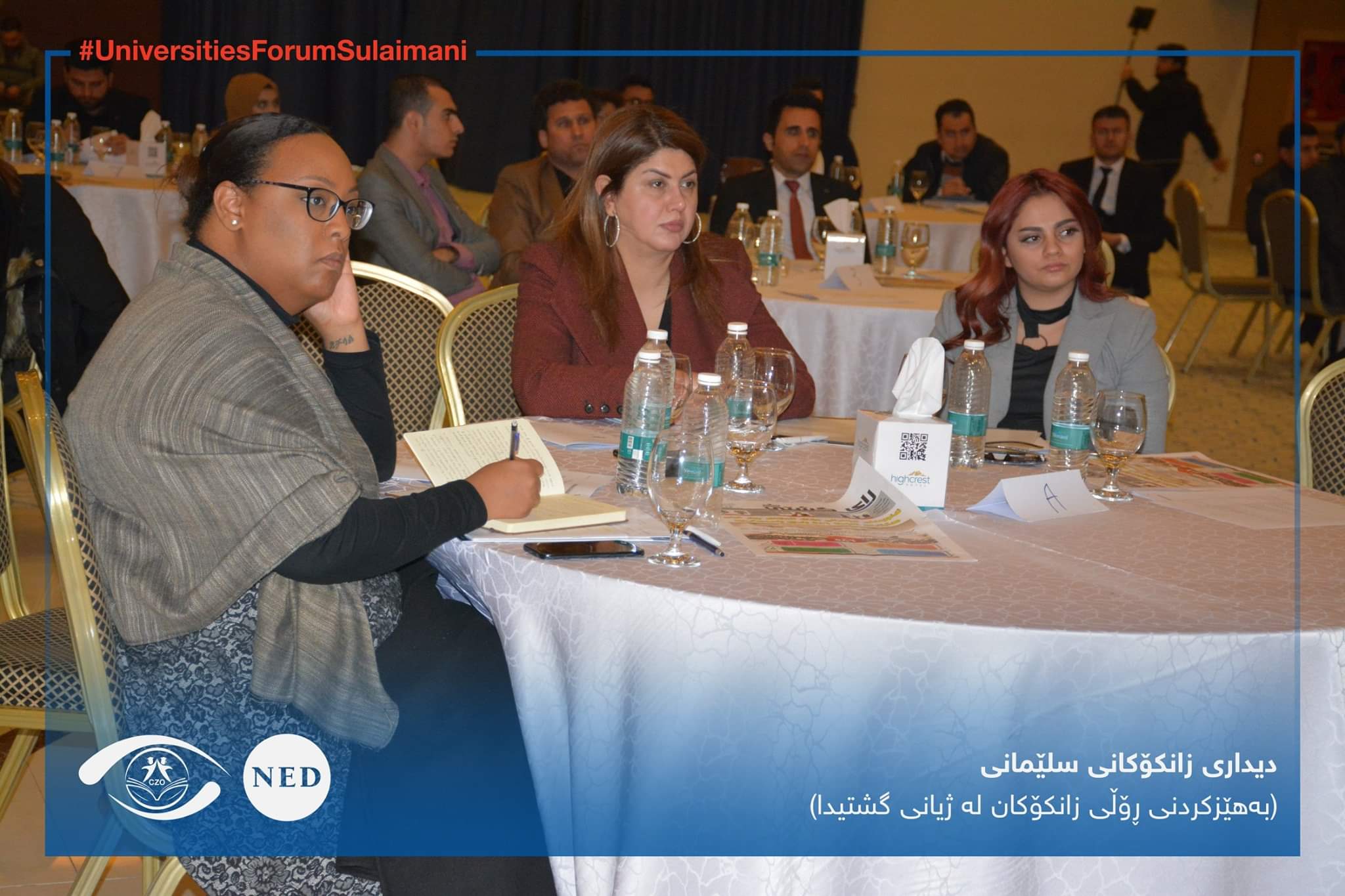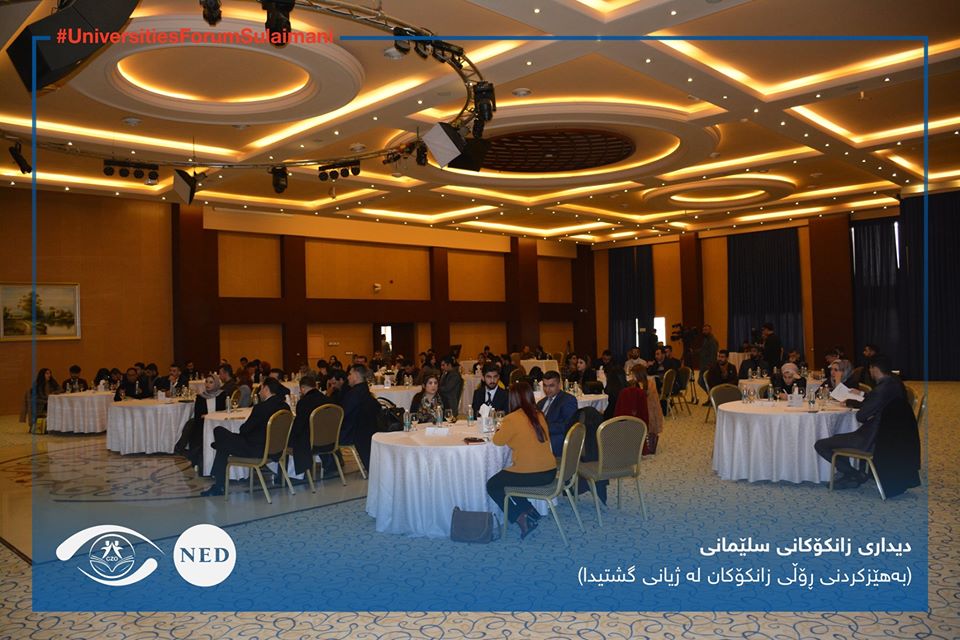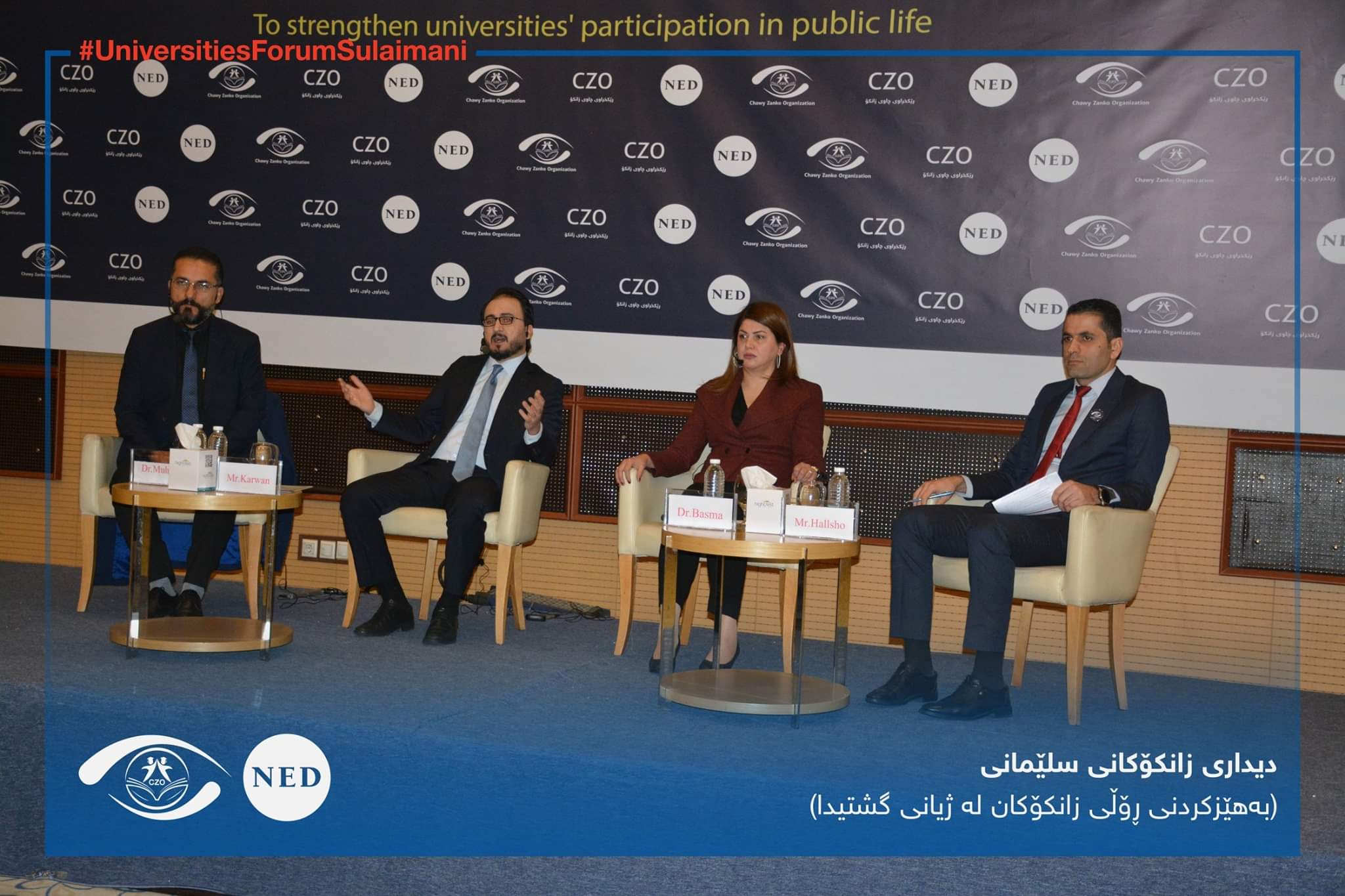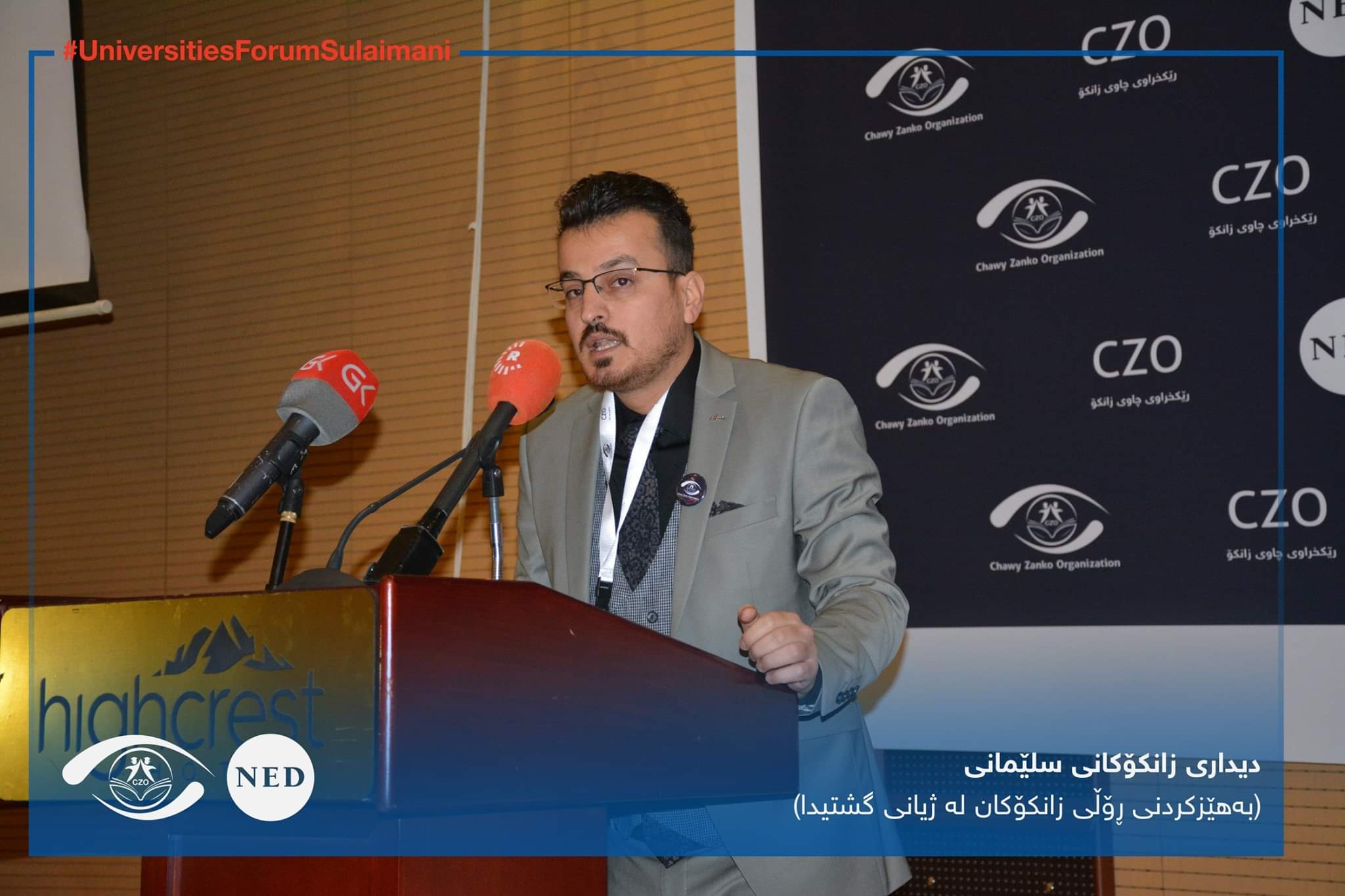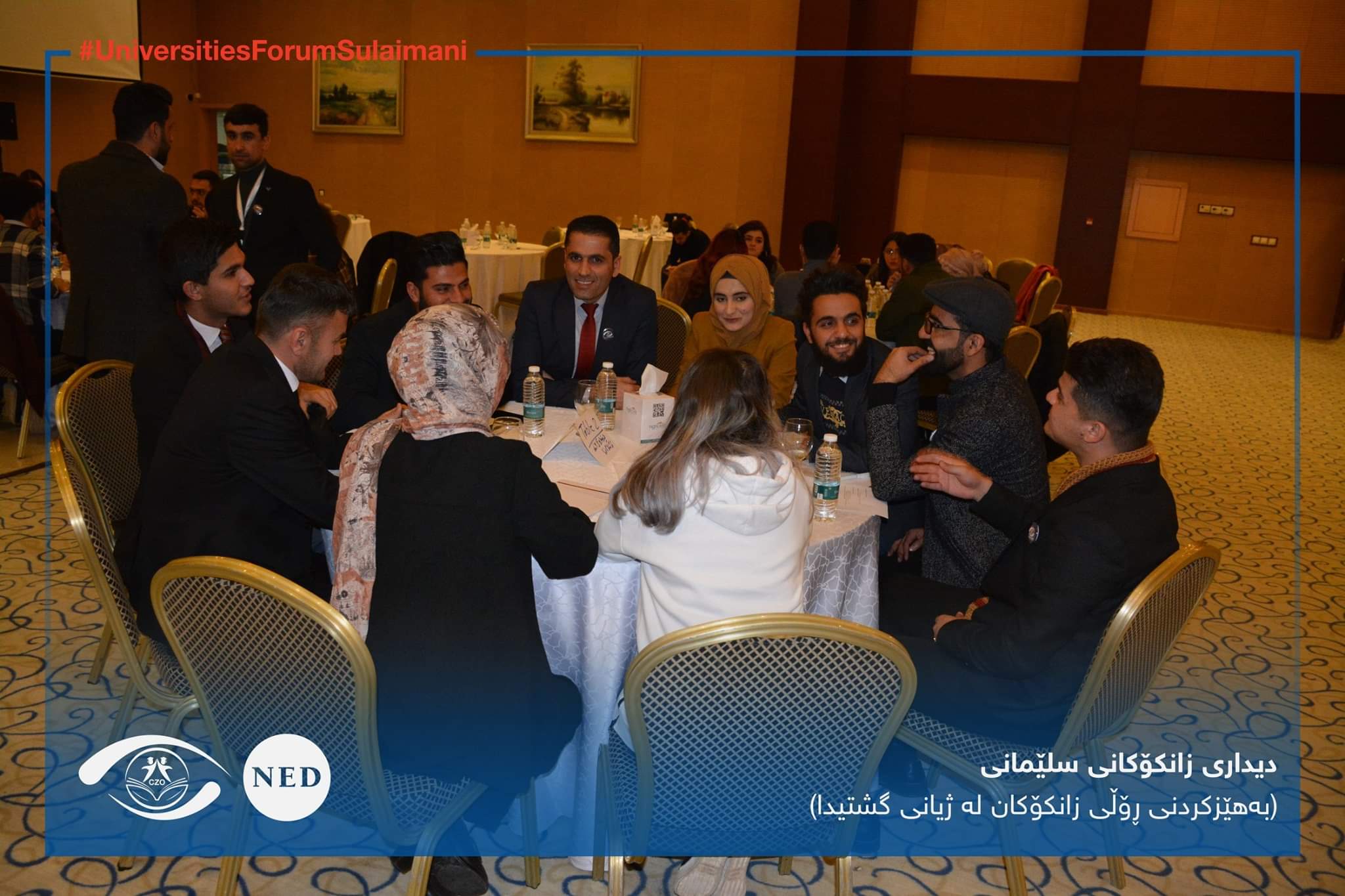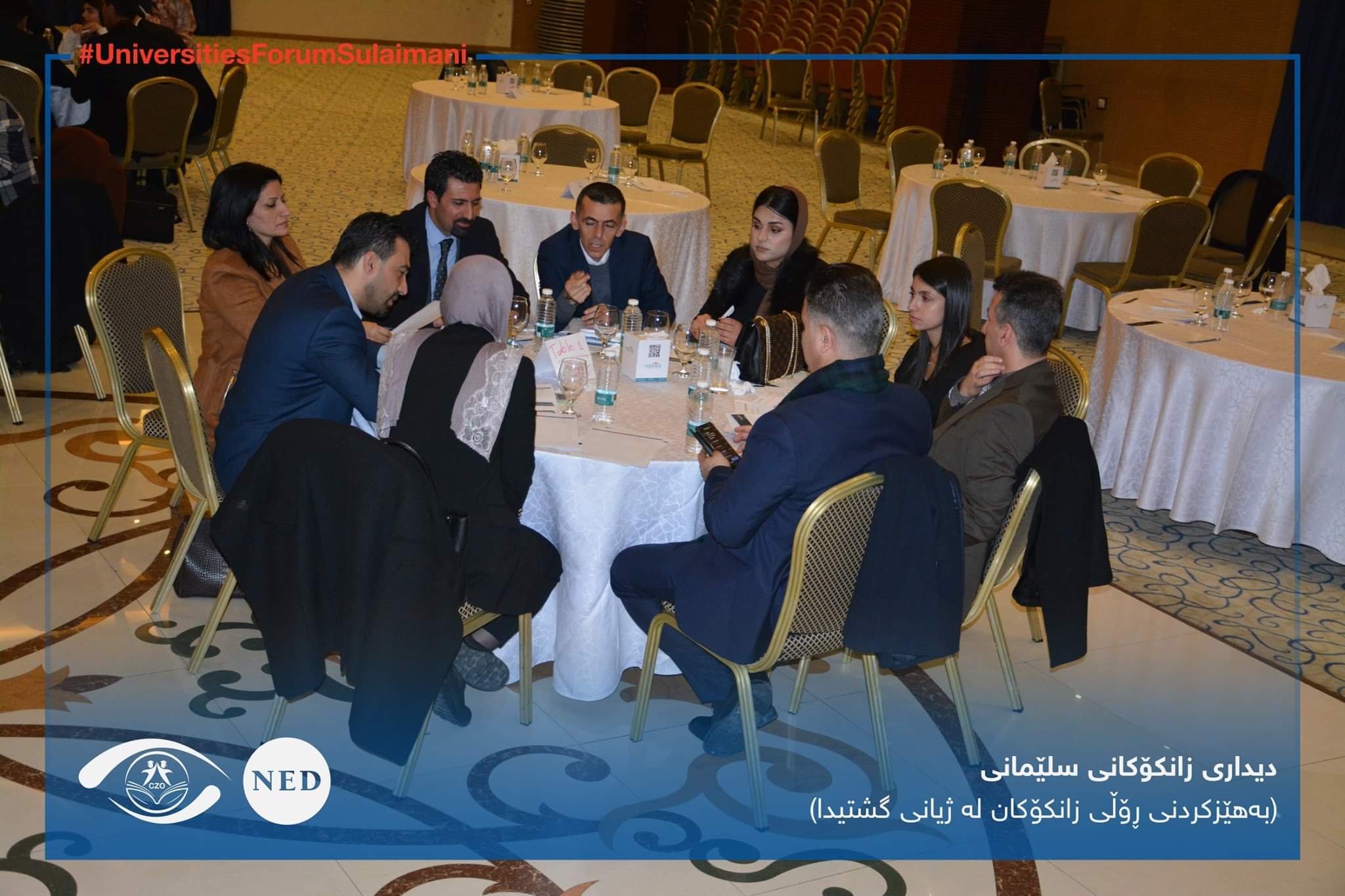Universities Forum – Sulaymaniyah 2020
Empowering Students, Enhancing Academic Governance, and Advancing the Role of Universities in Public Life.
- Part of CZO’s Universities Forum Series with NED support.
- Focused on youth participation, leadership, and university reform.
- Brought together academics, parliamentarians, and civic activists.
The Universities Forum – Sulaymaniyah 2020 opened with welcoming remarks from Mr. Bilal Faris Ahmed, Executive Director of CZO, who emphasized the critical role of universities in fostering democratic participation and the rule of law. The event brought together over 90 participants, including lecturers, students, MPs, and civic representatives.
In his speech, Mr. Faris highlighted CZO’s partnership with the National Endowment for Democracy (NED) and its mission to strengthen the governance of Kurdistan’s universities through research, policy dialogue, and student empowerment.
Strengthening Leadership and Good Governance in Universities
This session explored internal governance structures, leadership capacity, and the empowerment of young academics and women in higher education. Panelists included:
- Dr. Basma Mohammed Mustafa – Lecturer, University of Sulaimaniyah.
- Dr. Karwan Hama Salh – University of Charmo.
- Dr. Mohsin Adeb – Komar University.
“Strong universities depend on transparent leadership and equal opportunities for faculty and students.”
The Role of Universities in Public Life
The second panel featured policymakers, educators, and civic activists discussing how universities can better connect with society and policymaking. Speakers included:
- MP Karwan Gaznayee – Member of Kurdistan Parliament.
- Dr. Saman Fawzi – Researcher and Lecturer, University of Halabja.
- Mr. Ranjdar Saeed – Trainer and CDC Coordinator.
The discussion centered on how academia can contribute to civic education, community development, and evidence-based policymaking. Participants emphasized the need for stronger collaboration between universities and government institutions.
The event received extensive national and local media coverage. The following channels and outlets covered or broadcast the forum:
- K24 (live)
- Zagros Arabi (live)
- Kurdistan TV
- Payam TV
- Gli Kurdistan
- PUK Media
- Nawa Radio
- Alhurra Iraq
- Iraqia Channel
- Rudaw
Representatives from the following universities took part in the Sulaymaniyah Forum:
- University of Sulaimaniyah
- Charmo University
- Komar University
- University of Halabja
- American University of Sulaimaniyah
- Raparin University
- University of Human Development
Key Takeaways
- Universities should institutionalize democratic student councils.
- Promote women’s leadership and inclusivity within academia.
- Encourage partnerships between universities and civic organizations.
Recommendations
- Develop clear mechanisms for student representation and participation.
- Adopt ethical standards and transparency practices in university management.
- Enhance research-based collaboration between academia and Parliament.
The forum hosted representatives from the Ministry of Higher Education, university faculty, student councils, NGOs, and the media. Coverage was provided by several national channels as listed above. Group discussions allowed participants to develop joint recommendations on academic integrity, leadership, gender equality, and civic responsibility.
The Universities Forum – Sulaymaniyah 2020 strengthened dialogue among higher-education stakeholders in the Kurdistan Region. It laid the foundation for subsequent forums under CZO’s Universities Forum Series, building a tradition of accountability, inclusiveness, and reform-oriented collaboration across campuses. The outcomes from Sulaymaniyah directly informed later discussions in Erbil and Duhok, contributing to a unified call for democratic transformation in higher education.

